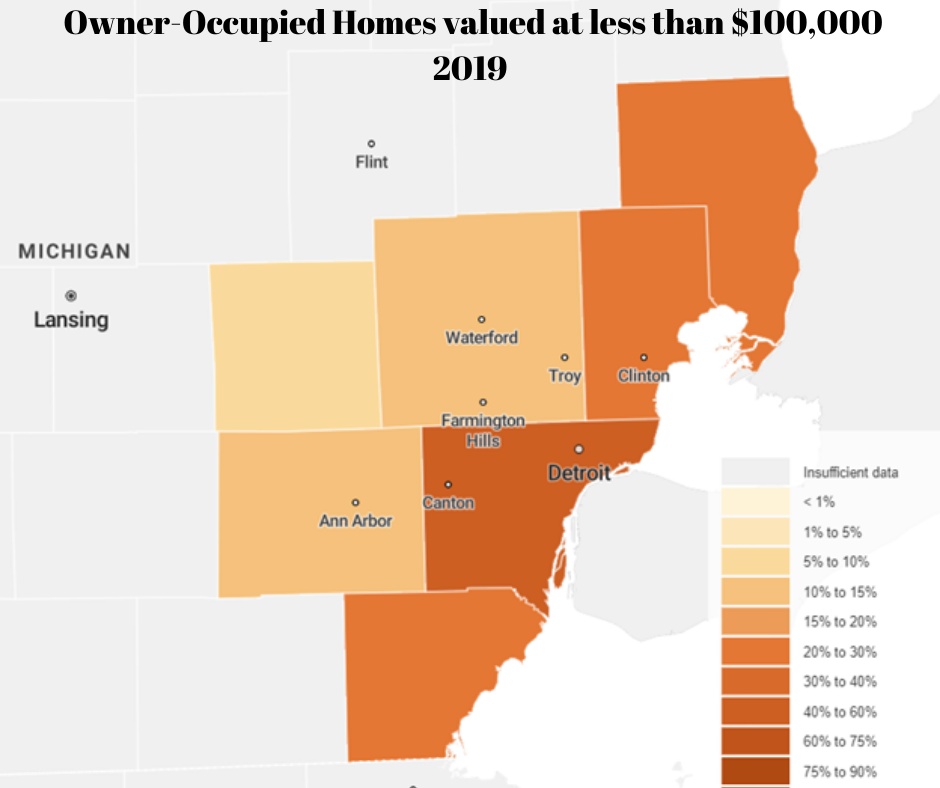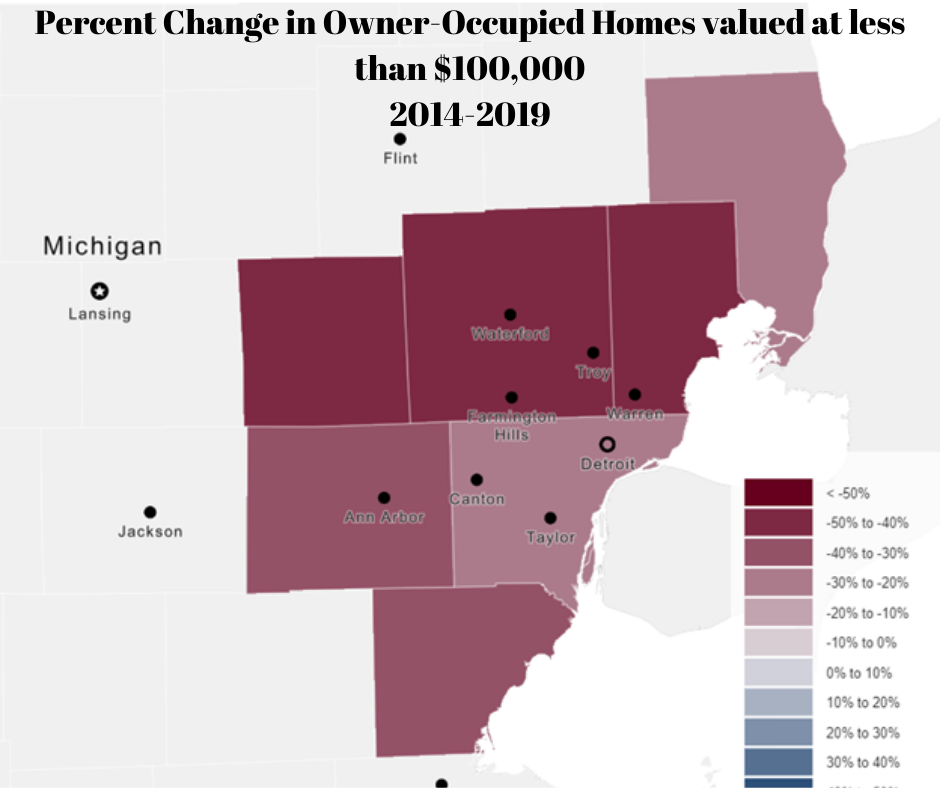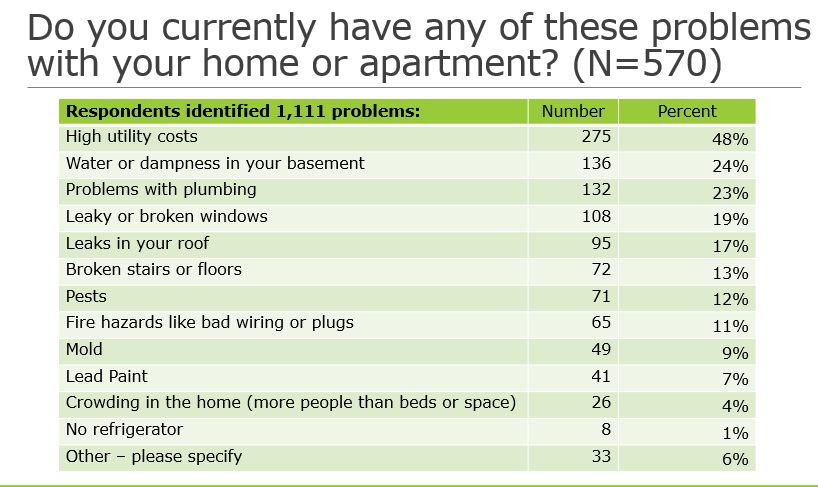Housing prices continue to soar in the Metro-Detroit region, and beyond. According to the Case-Shiller Home Price Index, the average price of single-family dwellings sold was $154,160 in July of 2021; this was $1,560 higher than the average family dwelling price in June. Furthermore, the July 2021 price was an increase of $21,700 from July of 2020 and $56,030 from July of 2014. This means, that the average single-family dwelling was being sold for under $100,000 in 2014. The data below shows how pressed a homebuyer would be to find a home for such a price in 2019 (most recent American Community Survey), meaning it is even more difficult today.
According to the 2019 ACS data, Wayne County had the highest percentage of owner-occupied units that were valued at less than $100,000 at 44.8 percent. The percentage of owner-occupied homes valued at less than $100,000 available in Wayne County in 2019 was 24 percent less than what was available five years prior (2014). Wayne County experienced the smallest decline in owner-occupied units valued at less than $100,000, while Oakland County experienced the largest. In 2019, 12.5 percent of the owner-occupied units in Oakland County were valued at less than $100,000. That number is a 47 percent decrease in the percentage of owner-occupied units valued at less than $100,000 in 2014—five years prior.


While Oakland County had the largest decline in the percentage of owner-occupied units valued at less than $100,000 between 2014 and 2019, it was Livingston County that had the smallest percentage of owner-occupied units valued at less than $100,000 both in 2014 and 2019. In 2019, 8 percent of Livingston County’s owner-occupied housing stock was valued at less than $100,000 and in 2014 it was 14 percent (still the lowest in the region).
Overall, the data shows some of what we already know—particularly that housing prices continue to increase, and at a more rapid rate than in previous years. However, we also know that wages are not increasing with the rate of inflation, and for many, with the rate of increased home prices. As affordable housing continues to remain an issue, it is important to understand where those gaps are also growing at an increased rate. The data shows that, regionally, Wayne County had the largest percentage of homes available for under $100,000, with the number available decreasing at the slowest rate.
